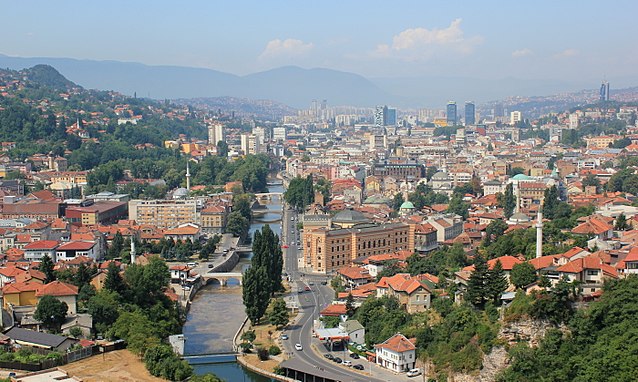Six countries in the Western Balkans, namely Albania, Bosnia and Herzegovina, Kosovo, Montenegro, North Macedonia, and Serbia, are set to receive a new €6 billion growth plan. The plan aims to provide some of the benefits of EU membership to the region before the countries become members, which will help boost economic growth and accelerate much-needed socio-economic convergence. The growth plan is expected to speed up the enlargement process and promote economic growth in the region.
The new growth plan is centred around four main pillars. Firstly, there is an emphasis on enhancing the region’s economic integration into the EU single market, and secondly, boosting economic integration within the Western Balkans through the Common Regional Market. Thirdly, fundamental reforms should be speeded up, and finally, financial assistance should be increased to support these reforms.
To receive the allocated funds, the Western Balkan partners are required to deliver on critical reforms. They will be asked to prepare a reform agenda based on recommendations from the enlargement reports and the Economic reform programmes. These agendas will be assessed and adopted by the Commission.
Enlargement remains a key policy of the European Union. Full EU membership for the Western Balkans is in the Union’s political, security, and economic interest and will fulfill the people’s aspirations in the region.
EPP calls to open accession negotiations with Bosnia and Herzegovina
The Enlargement Package should send an encouraging and strong signal to the candidate countries, said Paulo Rangel MEP and Željana Zovko MEP, Vice-Chairs of the EPP Group.
“The enlargement policy represents one of the European Union’s most effective tools for preserving peace and safeguarding European citizens and borders. This is precisely why it is crucial to send a strong signal of support for the European aspirations of candidate countries. In this context, I call on the Commission to make a strategic decision and open accession negotiations with Bosnia and Herzegovina along with Ukraine and Moldova,” urged Zovko, Vice-Chair of the Parliament’s Foreign Affairs Committee.
Rangel, the Parliament’s negotiator for Bosnia and Herzegovina, emphasised that the European aspirations of citizens in the Western Balkans should be met while considering each candidate country’s individual progress and shortcomings.
“Since the granting of candidate status, Bosnia and Herzegovina has made concrete progress on the 14 key priorities. Building on this new, positive momentum for Bosnia and Herzegovina and the Western Balkans, work still needs to continue and reforms must be implemented. No backsliding is admissible on the rule of law, sovereignty, unity or the territorial integrity of Bosnia and Herzegovina, but the way ahead is clear. The Commission and the Council now have an opportunity to turn this progress into further EU integration, with the full support of the European Parliament,” said Rangel.
“The stability, safety and the European future of these countries are indivisible prerequisites that complement our own security and the protection of the European way of life,” stressed Zovko.
S&Ds call to start the accession talks with Bosnia and Herzegovina
The Socialists and Democrats have strongly supported a more robust EU enlargement policy. They endorse the proposal to initiate accession negotiations with Bosnia and Herzegovina and offer fresh opportunities to all other Western Balkan nations seeking to join the European Union.
“While fully supporting clear steps regarding the enlargement process in the EU’s Eastern neighbourhood, we must not forget about the countries in the Western Balkans. Two decades ago, we promised them that they would one day join our European family. After last year’s positive news on opening accession talks with North Macedonia and Albania, it is necessary to keep the pro-European flame alive in the entire region. To this end, in December, we expect EU leaders to agree on starting the accession negotiations with Bosnia and Herzegovina,” said Tonino Picula, S&D coordinator in the foreign affairs committee and European Parliament rapporteur on the New Enlargement Strategy.
“The European Commission is offering the region a growth plan linked to clear reform progress and thus better economic prospects, but money alone will not solve the problems. To ensure a better, European future for the region, the EU must stop its appeasement politics towards the regional strongmen. At the same time, all the Western Balkan countries must invest all their political capital in genuine reconciliation and good neighbourly relations. As the biggest country in the region, Serbia, under the leadership of its president Aleksandar Vučić, obviously bears a particular responsibility for stability and peace in the Western Balkans,” added Picula.
“The recent terrorist attack against Kosovo police officers, carried out by Serbian paramilitaries, stands out as a stark reminder that the peace in this region remains fragile. This calls for serious political consequences, including the freezing of pre-accession funding intended for Serbia if the investigations reveal the direct involvement of the Serbian state. Moreover, there must be no room for separatist rhetoric and actions practised in Republika Srpska by Milorad Dodik,” concluded Picula.

